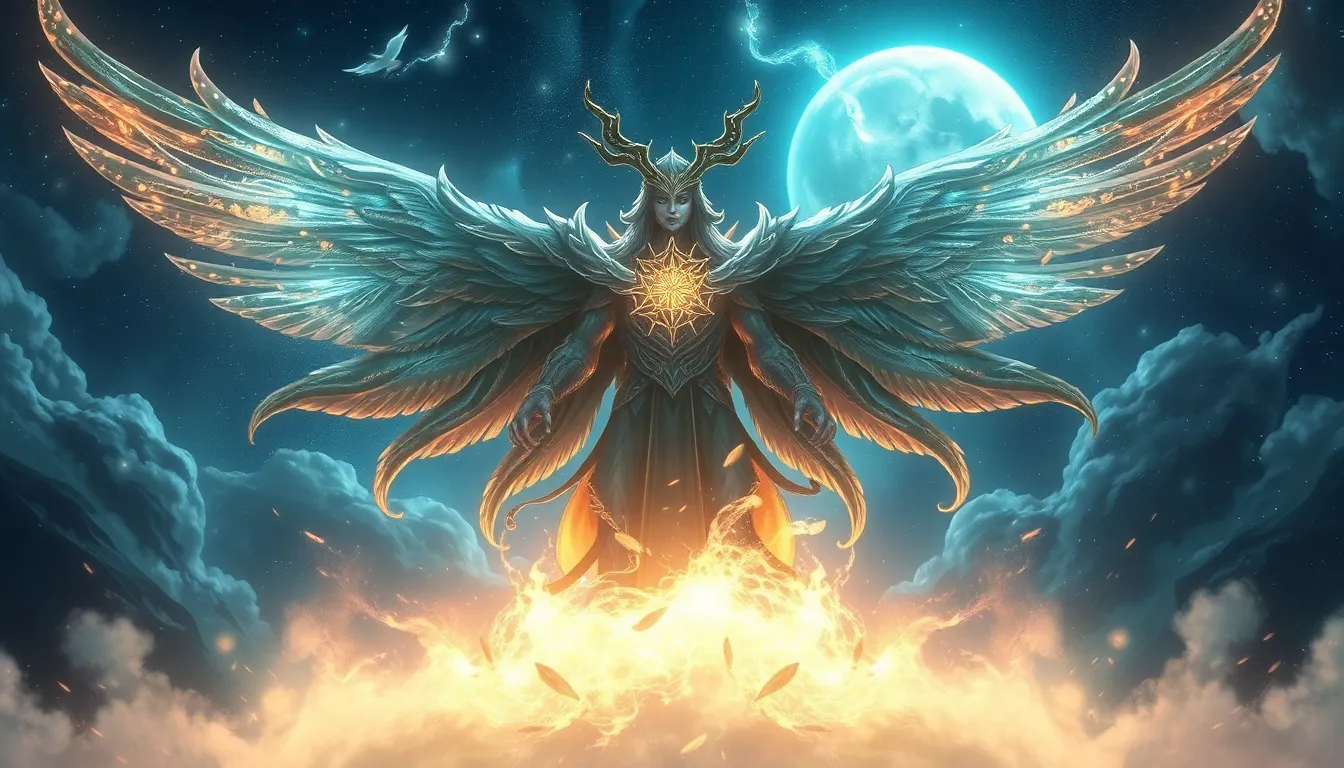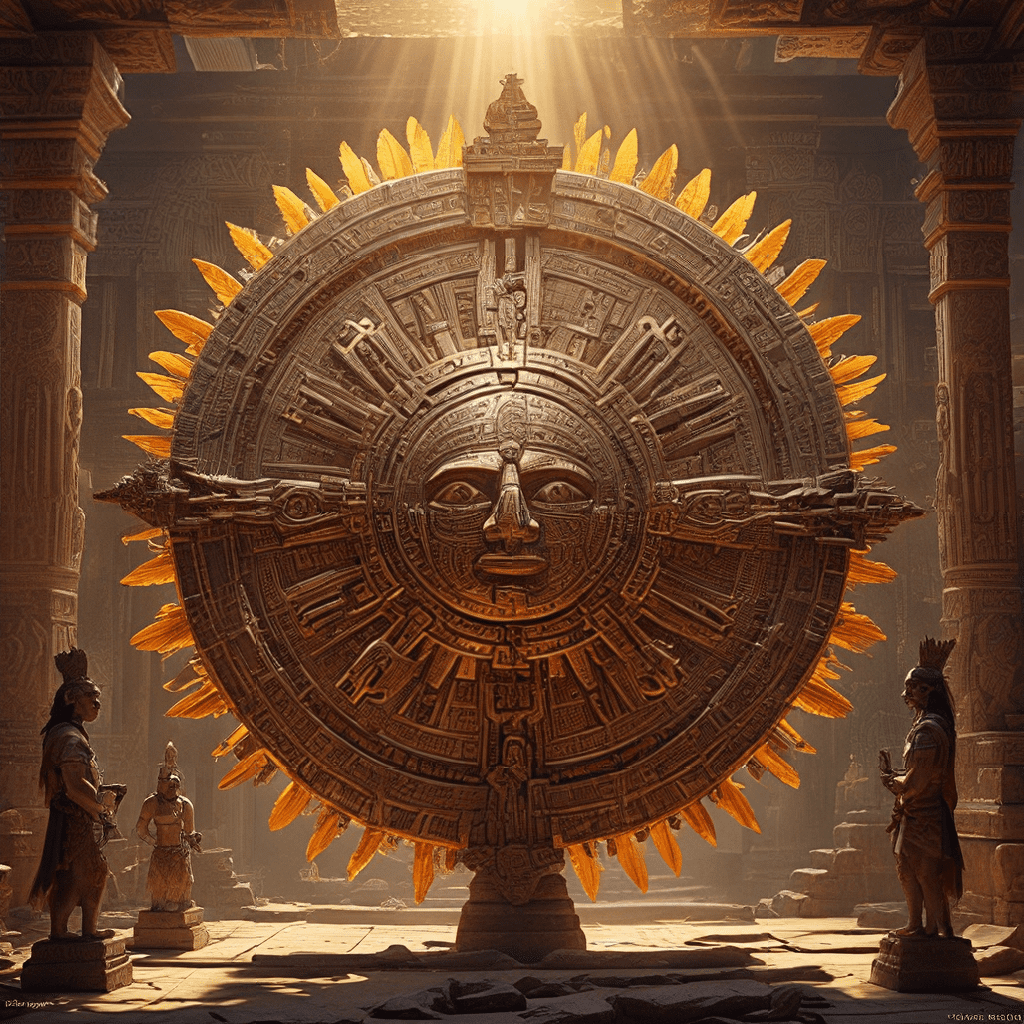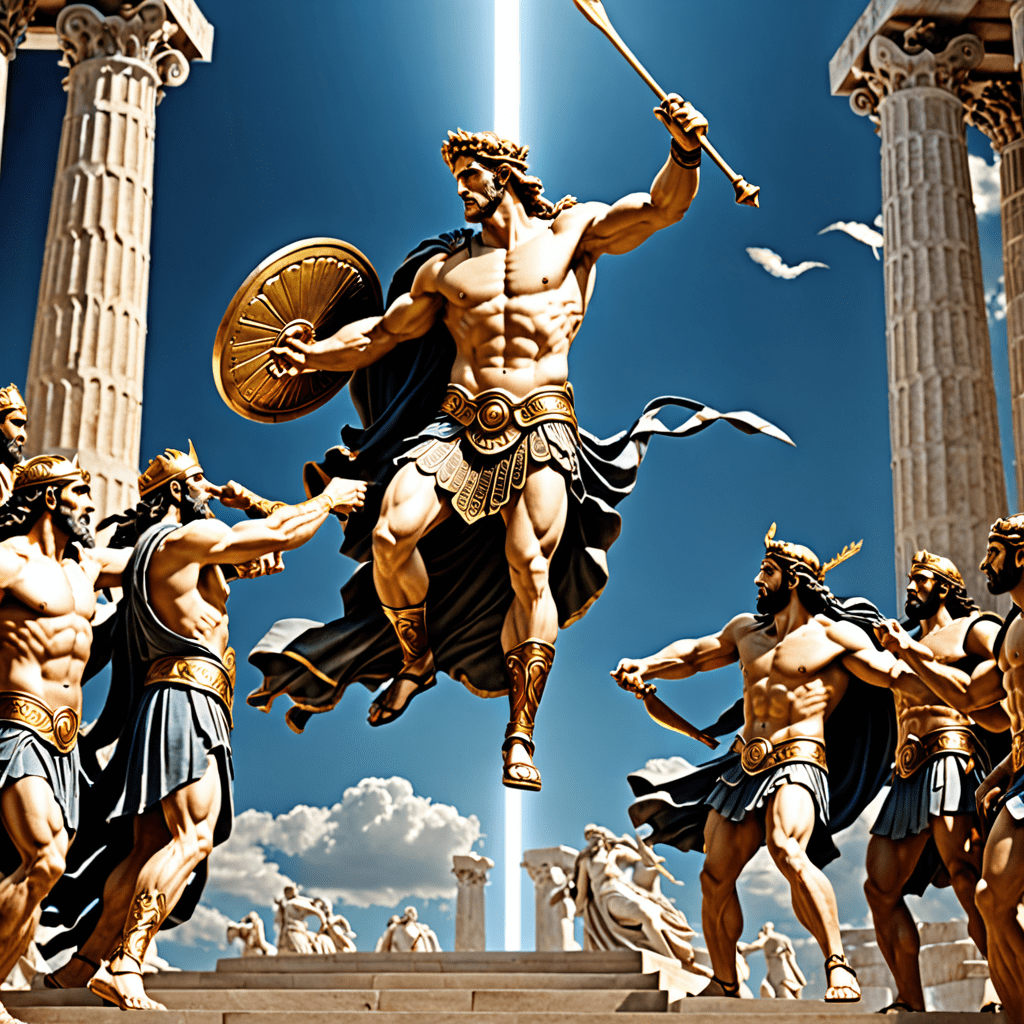The Journey of the Celestial Guardian: Myths of Protection and Care
I. Introduction to Celestial Guardians
Celestial guardians are mythical beings that embody the principles of protection, care, and guidance. Often depicted as celestial entities or spirits, they are believed to oversee human affairs from a higher realm. These guardians serve as symbols of hope and safety in various cultures, acting as intermediaries between the divine and the mortal.
Across different civilizations, celestial guardians have played pivotal roles, guiding individuals and societies through challenges and uncertainties. Their importance in mythology lies in the fundamental human need for protection and care, reflecting our longing for security in an unpredictable world.
II. Historical Context of Celestial Guardians
Historically, ancient civilizations viewed celestial beings as integral to their belief systems. From the Egyptians worshipping the sky gods to the Greeks honoring the constellations, celestial guardians were believed to influence daily life and natural phenomena.
Over time, guardian myths have evolved, adapting to cultural changes and shifts in societal values. With the advent of astronomy and astrology, these myths became intertwined with celestial observation, leading to more complex interpretations of celestial guardians as both protectors and navigators of human destiny.
III. The Characteristics of Celestial Guardians
Across various mythologies, celestial guardians often share several common traits:
- Divine Origin: Many celestial guardians are depicted as beings of light or energy, transcending the human experience.
- Wisdom and Knowledge: They are often portrayed as wise figures who possess deep understanding of the universe’s workings.
- Compassion and Nurturing: Guardians typically exhibit nurturing qualities, providing comfort and support to those in need.
The symbolism associated with these guardians often intertwines themes of light, guidance, and strength. Furthermore, the duality of their roles—as protectors and nurturers—highlights the balance between strength and compassion in the face of adversity.
IV. Notable Celestial Guardians in Mythology
Numerous celestial guardians feature prominently in the myths of different cultures:
A. Greek mythology
In Greek mythology, Astraea, the goddess of justice, represents purity and innocence, watching over humanity as a celestial guardian. Other figures, like the Titan Atlas, are also seen as protectors, upholding the heavens and safeguarding the earth.
B. Hindu mythology
In Hinduism, deities such as Indra, the king of the gods, and Durga, the warrior goddess, embody the role of celestial guardians. Indra protects against chaos and storms, while Durga symbolizes strength and protection against evil forces.
C. Native American beliefs
Many Native American tribes connect celestial spirits with the stars, viewing them as guides and protectors. The North Star, for instance, is often seen as a guiding light, aiding travelers in their journeys.
V. The Journey of a Celestial Guardian
The narratives surrounding celestial guardians often involve significant journeys, reflecting their roles in the evolution of humanity.
A. Mythological narratives
Many myths depict celestial guardians embarking on quests to protect humanity or restore balance to the universe. These stories often symbolize the guardian’s commitment to their role and the sacrifices they make.
B. Transformation and trials
Throughout their journeys, celestial guardians face various trials that test their strength and resolve. These challenges often lead to profound transformations, deepening their understanding of the world and enhancing their capacity to protect.
C. Lessons learned
Guardians often emerge from their journeys with valuable lessons that resonate with human experiences. Themes of resilience, compassion, and the importance of community are common in these narratives.
VI. The Role of Celestial Guardians in Cultures Today
In modern times, the influence of celestial guardians continues to permeate spirituality and cultural expressions.
A. Impact on modern spirituality
Many contemporary spiritual practices draw inspiration from the symbolism of celestial guardians, emphasizing protection, guidance, and connection to the cosmos.
B. Contemporary literature and art
Celestial guardians frequently appear in literature and art, symbolizing hope and protection. They inspire stories that explore the human condition through the lens of divine guardianship.
C. Rituals and practices
Various rituals, inspired by guardian myths, are practiced today, including meditation and prayer aimed at invoking the presence of these celestial protectors.
VII. The Psychological and Emotional Impact of Guardian Myths
Celestial guardian myths play a significant role in providing psychological comfort and emotional security.
A. Comfort and security
The belief in guardians can offer solace during difficult times, providing individuals with a sense of safety and reassurance.
B. Coping mechanisms
Mythological narratives often serve as coping mechanisms, helping individuals navigate distressing experiences by framing them within the context of a larger cosmic order.
C. Archetypes in personal development
Guardians represent archetypes that can inspire personal growth, encouraging individuals to embrace their protective instincts and nurture their inner strength.
VIII. Comparative Analysis of Celestial Guardians
A comparative analysis of celestial guardians reveals both similarities and differences across cultures.
A. Similarities and differences
While many cultures share the archetype of the guardian, the attributes and roles can vary significantly based on cultural context.
B. Universality of the guardian archetype
The universality of the guardian archetype speaks to a collective human longing for protection and guidance across cultures.
C. Influence of local environments
The environment often shapes the characteristics of guardians, with different cultures attributing unique traits based on their natural surroundings.
IX. The Future of Celestial Guardian Myths
The relevance of celestial guardian myths continues to evolve in the modern context.
A. Relevance in a modern context
As societies grapple with new challenges, the themes embodied by celestial guardians remain pertinent, offering insights into resilience and hope.
B. New interpretations
New interpretations of guardian myths are emerging, reflecting contemporary issues such as environmental stewardship and social justice.
C. Role of technology
Technology and media play a crucial role in reshaping these narratives, allowing for innovative storytelling that resonates with modern audiences.
X. Conclusion: The Enduring Legacy of Celestial Guardians
The legacy of celestial guardians endures, reminding us of the timeless need for protection and care. Their stories inspire us to seek guidance, cultivate compassion, and protect one another in our shared journey through life. As we continue to explore these myths, we recognize their profound impact on our understanding of the human experience and our connection to the cosmos.



